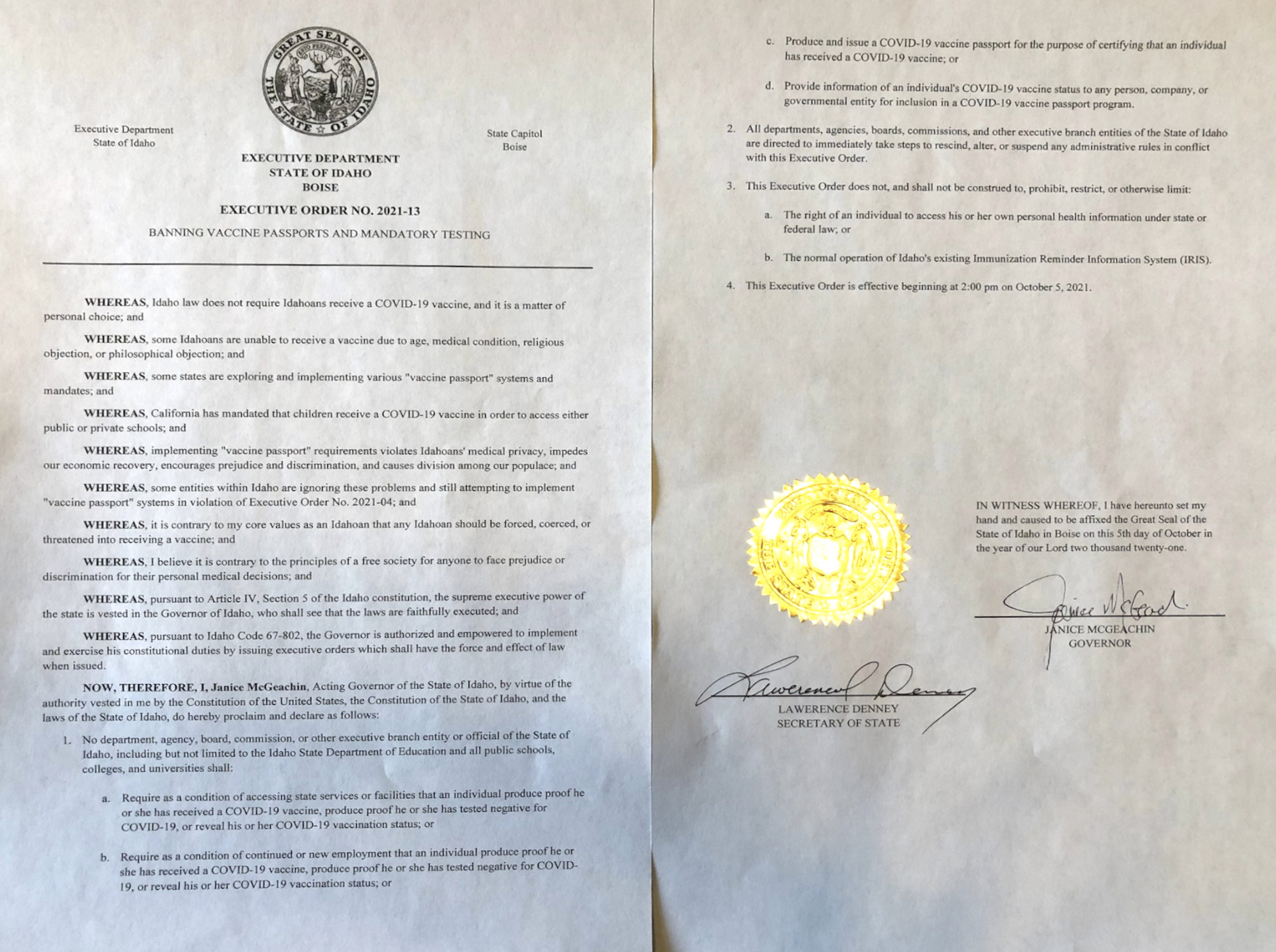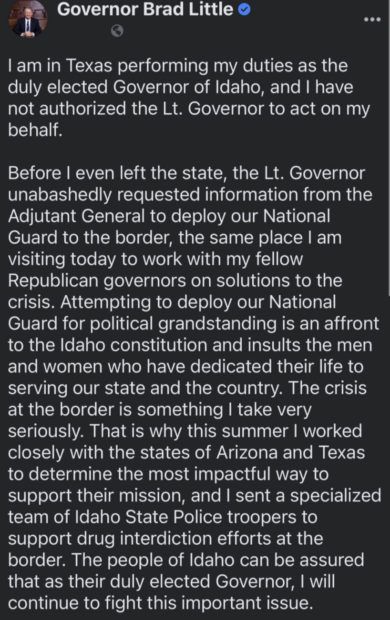 Gov. Brad Little and Lt. Gov. Janice McGeachin are fighting it out over executive orders again — this one involving vaccines and COVID-19 testing in schools.
Gov. Brad Little and Lt. Gov. Janice McGeachin are fighting it out over executive orders again — this one involving vaccines and COVID-19 testing in schools.
With Little heading to the U.S.-Mexican border this week, and McGeachin serving as acting governor in his absence, McGeachin took aim at Little’s April executive order banning “vaccine passports.”

McGeachin’s rewritten executive order would ban public schools and colleges and universities from requiring COVID-19 vaccinations or mandatory testing. The order triggered an almost immediate Twitter tiff.
“I fixed Gov. Little’s executive order on ‘vaccine passports,’” McGeachin said on Twitter at 3:43 p.m. Tuesday. “I will continue to fight for your individual liberty!”
“I will be rescinding and reversing any actions taken by the Lt. Governor when I return,” Little said on Twitter at 3:51 p.m.
Tuesday’s confrontation continues a public feud between Little and McGeachin — who are likely to square off in a bitter and crowded Republican gubernatorial primary. McGeachin announced her candidacy in May. Little has not formally announced his campaign, but he is widely expected to seek a second term, and he has outraised McGeachin and his other presumptive primary rivals.
House Speaker Scott Bedke — a Little political ally, now running for lieutenant governor himself — quickly came to Little’s defense, and said
“(McGeachin’s) actions today are the exact kind of overreach that does not represent Idaho and Idahoans. This is a complete grandstand and abuse of her political office in an attempt to influence voters,” said Bedke, who added that lawmakers are working on legislation designed to combat Biden administration vaccine mandates.
This isn’t the first time McGeachin has attempted to sign an executive order in Little’s absence.
Just days after announcing her candidacy, McGeachin issued an order rescinding local mask mandates — an unexpected move that left school administrators scrambling to sort out whether the edict applied to them. The question was made moot one day later. Returning to Idaho from a Republican Governors Association conference in Tennessee, Little overrode McGeachin’s order with one of his own.
Politics aside, any executive order on school vaccines would be unlikely to have much effect.
The state recommends a battery of vaccines for K-12 students — but parents can opt their kids out of any vaccination by turning in a note at school. And the COVID-19 vaccines, still unavailable to children under age 12, aren’t even on the state’s list of recommended vaccines.
Little’s April order on “vaccine passports” already precludes colleges and universities from requiring the jab. Consequently, all four-year schools merely encourage students to get vaccinated.
COVID-19 testing could be more of a legal gray area, however.
State law gives trustees the sweeping authority “to protect the morals and health” of students. The law also allows trustees to exclude students who have contagious or infectious diseases; students diagnosed or suspected as having a contagious or infectious disease; or students who are not immune from a contagious or infectious disease and have been exposed to such a disease.
Little in August freed up $30 million in federal coronavirus funding for an optional school testing program. To date, 55 schools and districts have signed up for a share of the money.
More reading: McGeachin inquired about whether she could deploy National Guard troops to the U.S.-Mexican border, Keith Ridler of the Associated Press reported.
